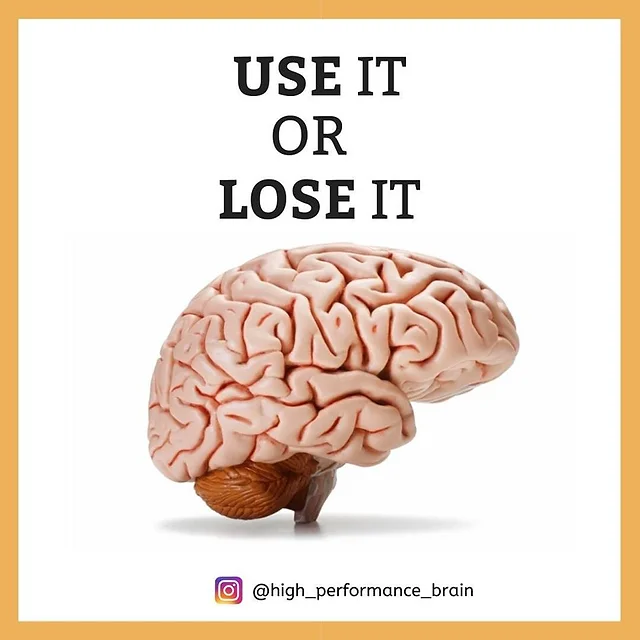“The battle to stay lucid in the face of aging is won by those who refuse to let their minds rust”
-Unknown

Courtesy of High Performance
Summary:
Cognitive decline, in most cases, is not self-inflicted. It is typically a natural and gradual process associated with aging. However, certain lifestyle factors and health conditions can contribute to the risk or progression of cognitive decline. While individuals cannot entirely control the aging process or prevent all instances of cognitive decline, they can take steps to reduce the risk and potentially slow its progression.
Detail:
It is important for individuals, especially as they age, to actively seek out and embrace mental challenges. This can include activities like learning new skills, pursuing hobbies, reading, solving puzzles, engaging in social interactions, or taking on intellectual pursuits. By embracing mental challenges, individuals can enhance their cognitive abilities, promote brain health, maintain social connections, and experience a greater sense of fulfillment and well-being throughout their lives.
.
Skill:
1.Engage in regular physical exercise: Physical activity improves blood flow to the brain, promotes the growth of new neurons, and enhances overall brain health.
2.Stay mentally active: Challenge your brain regularly with activities like puzzles, crosswords, reading, learning new skills, or playing brain-training games.
3.Maintain a healthy diet: Eat a well-balanced diet rich in fruits, vegetables, whole grains, lean proteins, and healthy fats. Certain nutrients, such as omega-3 fatty acids and antioxidants, are beneficial for brain health.
4.Get quality sleep: Aim for sufficient and restful sleep, as it allows the brain to recharge and supports cognitive functioning.
5.Practice mindfulness or meditation: Mindfulness exercises or meditation techniques can help reduce stress, improve focus, and enhance cognitive abilities.
6.Socialize and stay connected: Engage in social activities, maintain strong relationships, and participate in community groups to stimulate your brain and prevent social isolation.
7.Learn something new: Continuously challenge yourself by learning a musical instrument, a new language, or any other skill that interests you. This promotes neuroplasticity and keeps your brain active.
8.Manage stress: Chronic stress can have detrimental effects on the brain. Practice stress-management techniques, such as deep breathing, relaxation exercises, or engaging in hobbies, to reduce stress levels.
9.Stay mentally organized: Use calendars, planners, or digital tools to stay organized and manage tasks effectively. This reduces cognitive load and enhances productivity.
10.Stay curious and seek novelty: Embrace new experiences, explore unfamiliar places, try new hobbies, or engage in activities that push you out of your comfort zone. Novelty stimulates the brain and promotes cognitive growth.
Action:
Do
Difficulty:
Easy
Speed:
Moderate
Other Compatible Coping Skills
How many stars would you award this coping skill?
